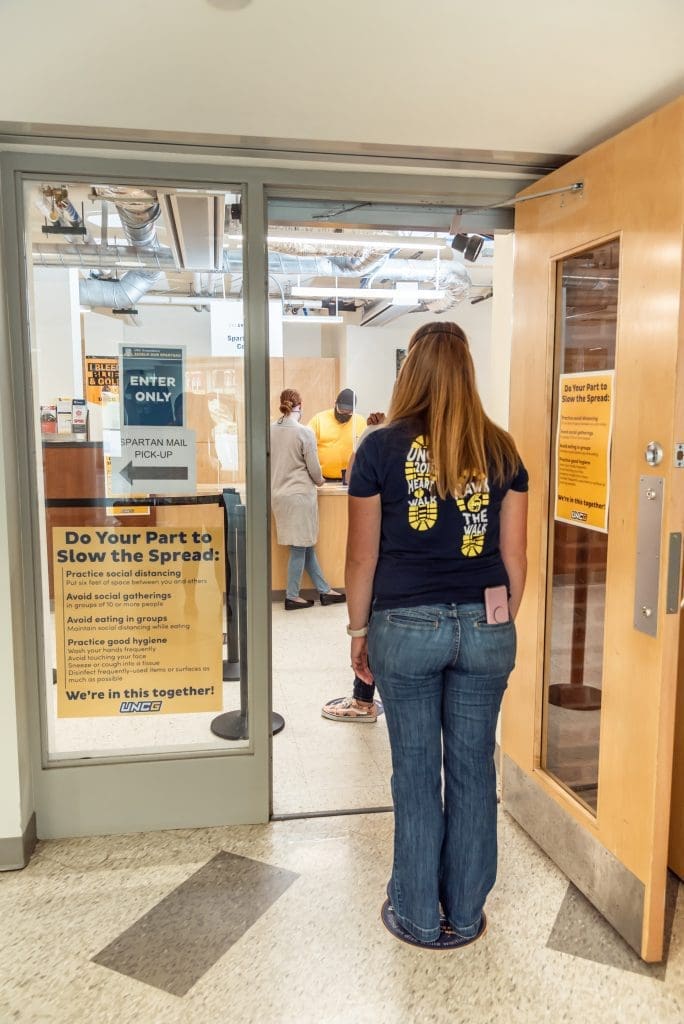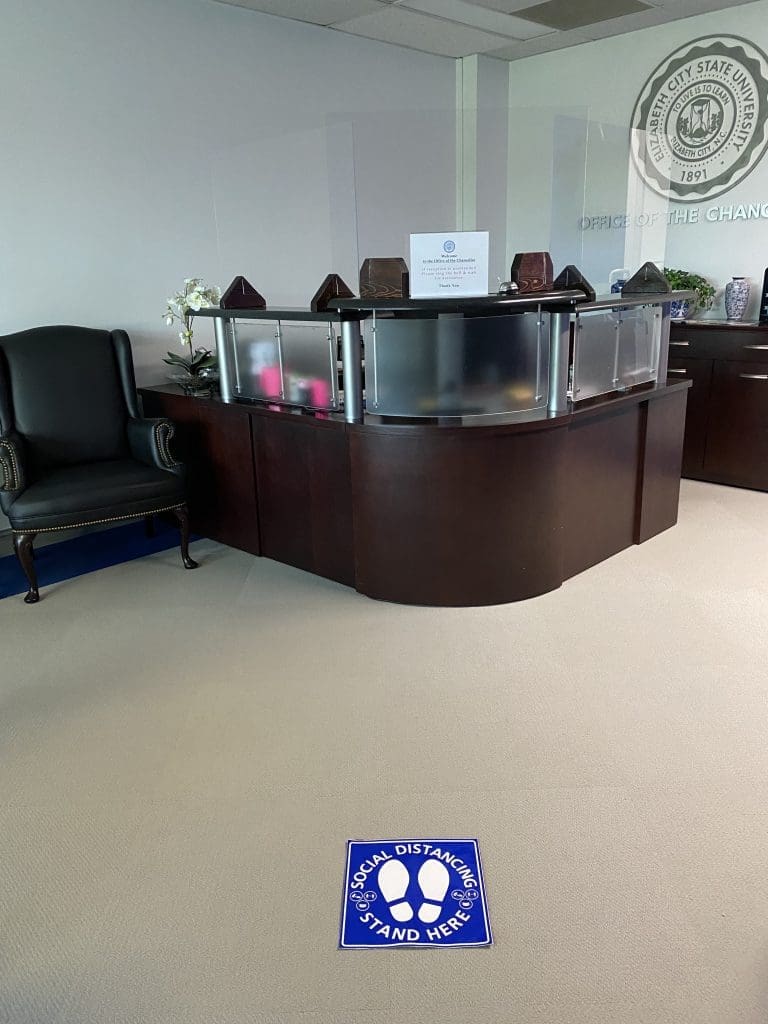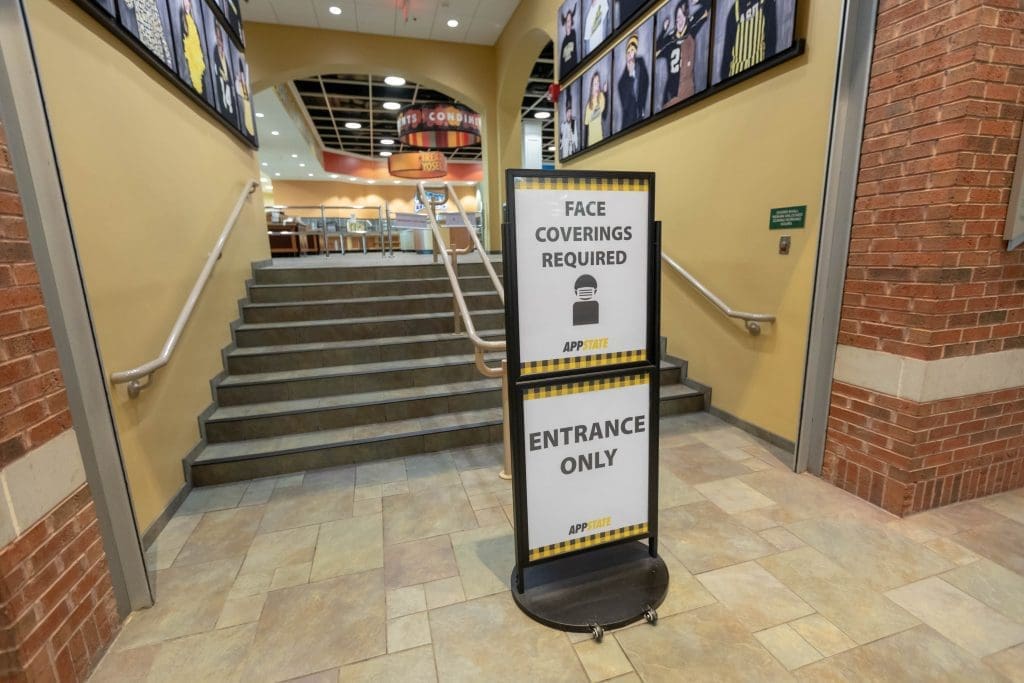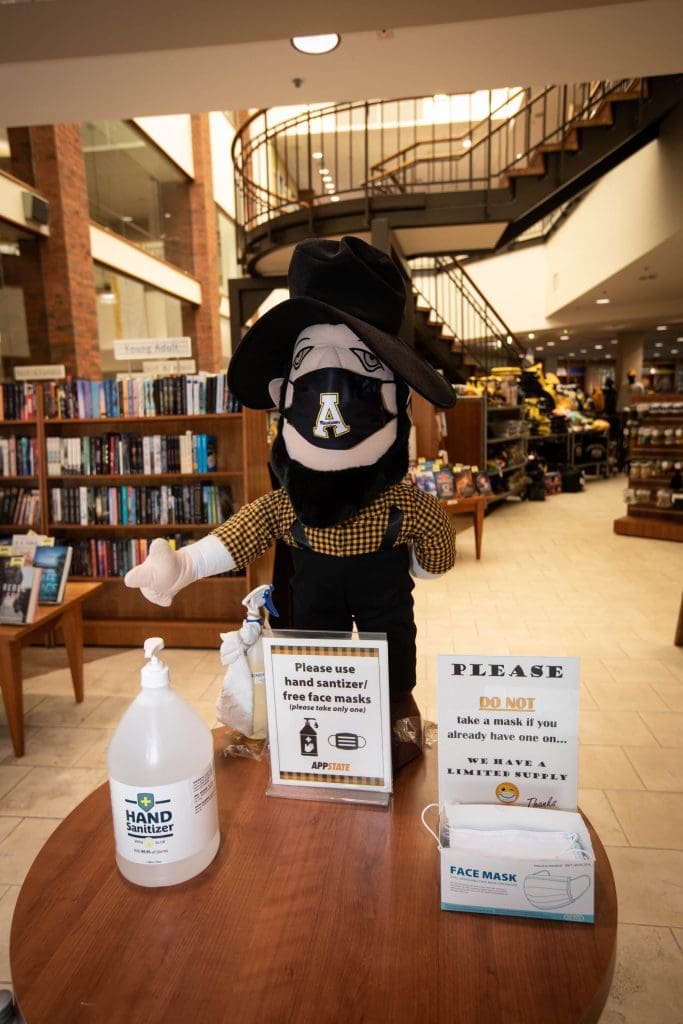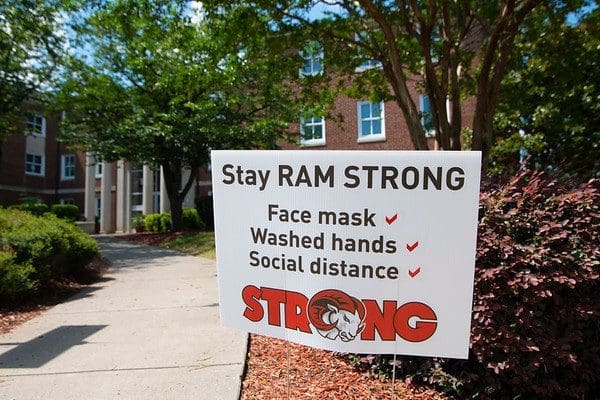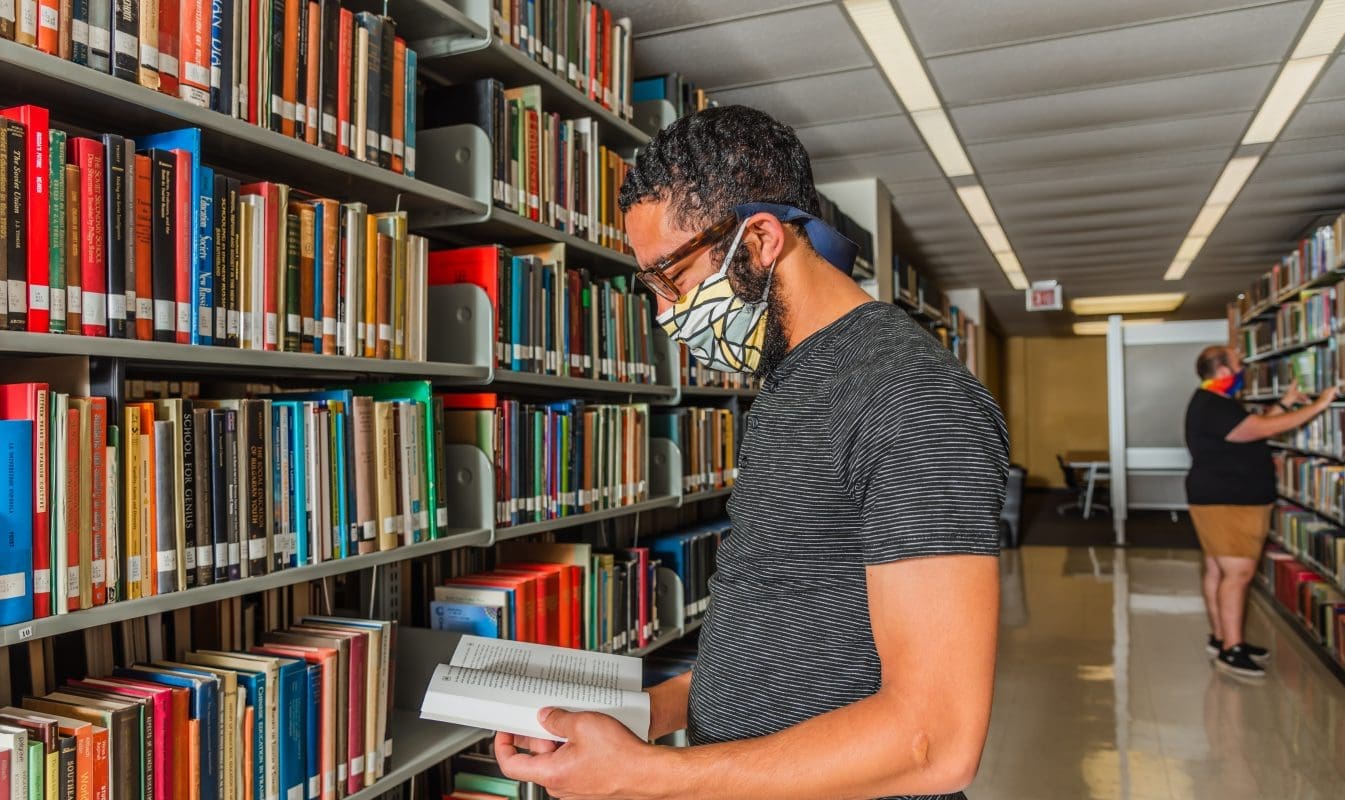
Discovery.
It’s the defining element of the university experience: uncovering new knowledge in classrooms, labs, and libraries; meeting new friends and expanding cultural horizons; and realizing new academic aspirations that will lead to life-changing personal and professional opportunities.
Higher education is about the discovery of self, in every meaning of the phrase.
The UNC System is committed to making sure that every North Carolinian has access to the transformative experiences of self-discovery. Remote instruction can provide many students with access to some of these experiences. But for most, campus life offers the most comprehensive access to the learning and living experiences that lead to more fulfilling lives, research discoveries and medical breakthroughs, and a stronger North Carolina.
That is why the UNC System has invested heavily in making its campuses safe places to teach, study, live, and work this fall.
Safety Is the New Fashion
The vast majority of COVID-19 transmissions occur through aerosol droplets. Uninhibited, these droplets can carry roughly six to eight feet. But the universal use of face coverings can drastically reduce the distance these microscopic particles can travel.
One recent study showed that even homemade masks can limit the distribution of exhaled aerosols to just over two inches. Other evidence corroborates these findings. According to a CDC report published in July, two infected stylists at a hair salon in Missouri recently served 139 clients. But because the salon enforced mask requirements, not a single client became infected.
A universal mandate to wear face masks in all public places on campus is central to UNC System plans. Our institutions aren’t just requiring them … they are providing them as well.
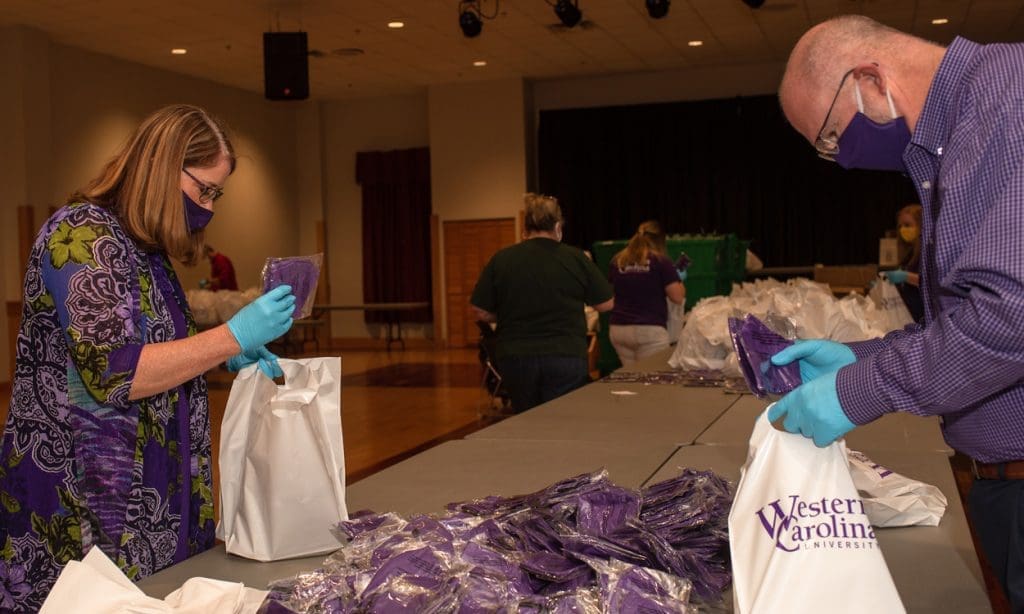
Western Carolina University’s Chancellor Brown helps prepare masks for distribution.
Collectively Extraordinary … While Physically Distanced
For COVID-19 to transmit from one person to another, the virus must be delivered in an infectious dose. If the virus is dispersed into the air, it must survive in that environment, and it must remain concentrated enough to infect others.
Face coverings play a significant role in diluting the spread of viral particles … and so do the social distancing measures that will be implemented across the UNC System.
Our campuses have worked hard to create safe learning environments. Classrooms have been reorganized to limit seating and maximize the physical distance between students.
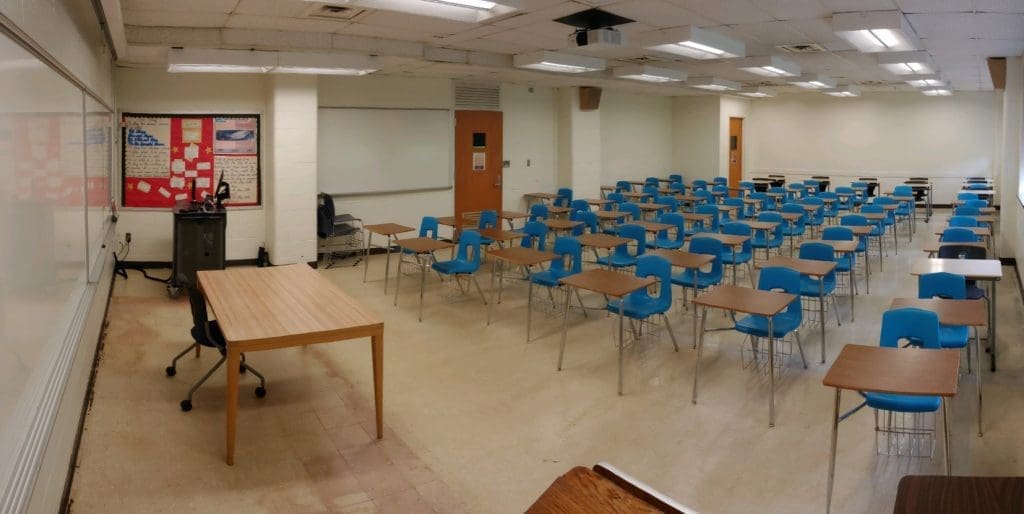
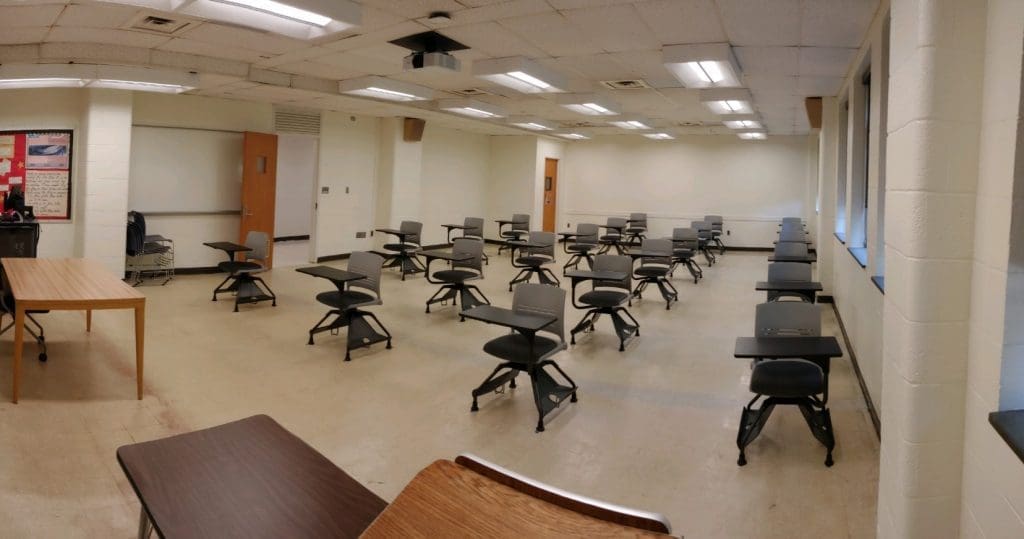
In larger theater spaces with fixed seating, signage or other measures will direct students to choose seats that are spaced apart.
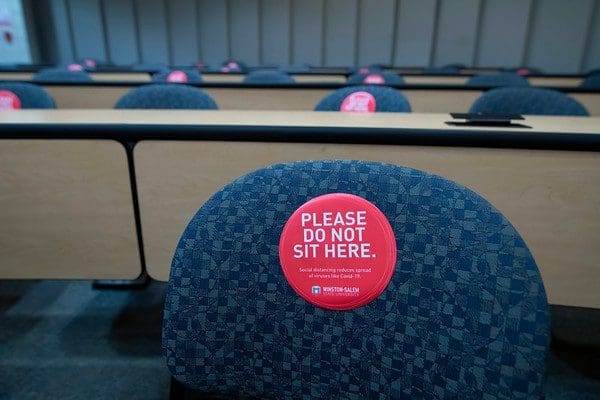
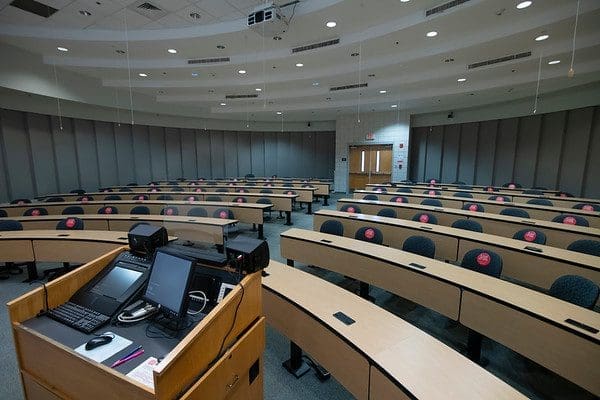
The plexiglass erected in front of lecterns will provide an impenetrable barrier between the instructor and the students during lectures. This is an important measure, given that vocal activities such as singing and public speaking can disperse droplets with more force, carrying an increased risk of transmission.
When combined with the face covering mandate, strategic seating will ensure that classrooms are safe learning environments.
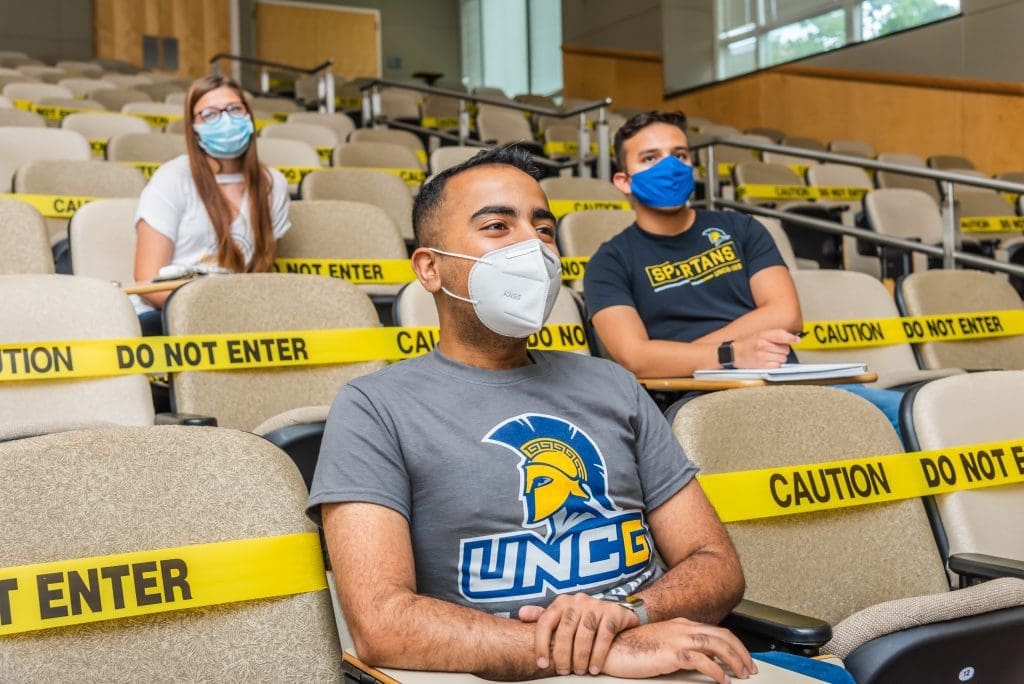
In addition, institutions will encourage a hybrid approach to instruction that utilizes both in-classroom and online learning. This will ensure that at-risk faculty and students don’t have to choose between good instruction and good health. This increased mix of remote learning technologies will also ease the strain on classroom space and enable social distancing.
Reimagining Public spaces
Of course, classrooms aren’t the only public spaces on a university campus. Countless other steps at each constituent institution will help minimize crowding and close contact.
Meeting rooms, study spaces, and other confined public spaces will be closed or used in a very limited capacity.
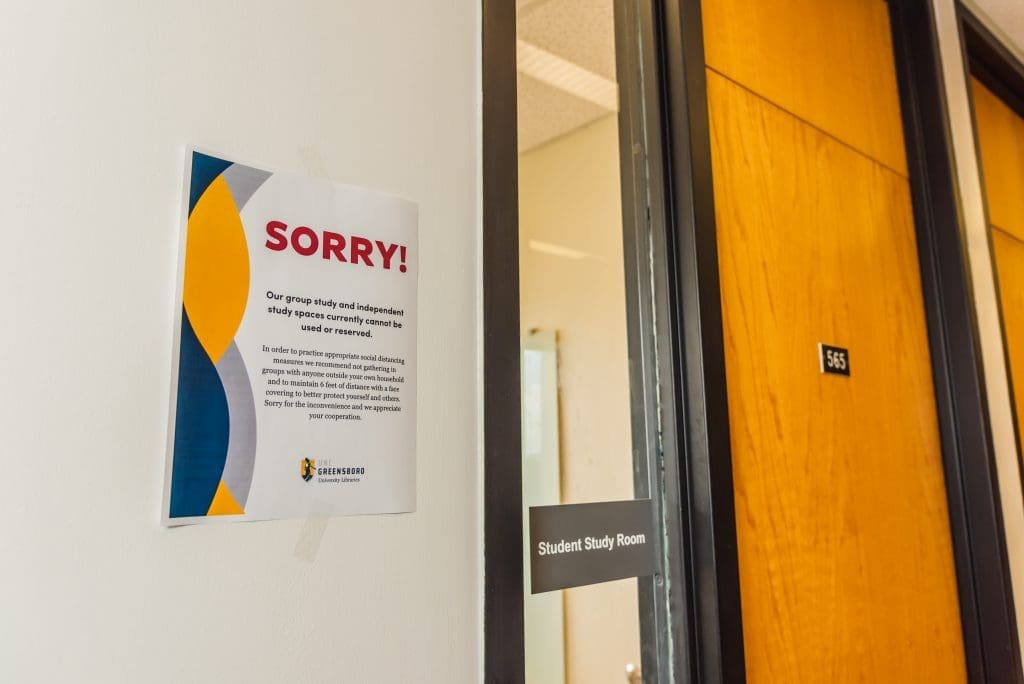
Traffic flow will be regulated to avoid congested thoroughfares.
Highly visible signage will promote physical distancing.
Staff will follow rigorous cleaning protocols outlined by the CDC, and personal hygiene stations will provide hand sanitizer, wipes, and information to help students protect themselves and others in the university community.
Where Aspirations Meet Opportunity
Every year, tens of thousands of students encounter life-changing moments … in classrooms, in libraries, in labs, or in the field. Returning to face-to-face instruction will ensure that the UNC System fulfills its mission to extend these opportunities to all.
While many students thrive in online environments, research shows that direct engagement with professors and face-to-face support has a substantial effect on student success, especially for those who are not as well-prepared academically.
For those without ready access to the latest technology and reliable internet, online education simply isn’t a viable option. For some, sitting out a semester might jeopardize life-long academic aspirations.
No one can predict exactly what COVID-19 will have in store for us in the coming months, but we will be prepared – on behalf of our students, faculty, and staff – for the full range of potential impacts this pandemic could have.
